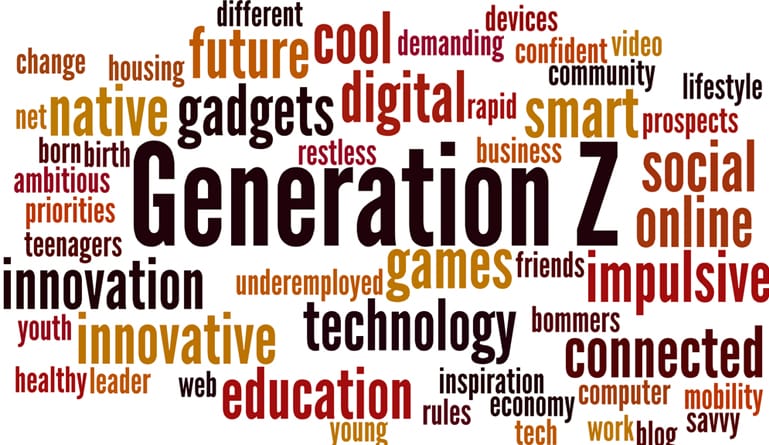By Felicia Nwosu
As Generation Z emerges as a formidable force in the global consumer landscape, comprising 23% of the population in 2023, their distinct behaviours present both opportunities and challenges for brands.
According to a recent report by Euromonitor International, understanding and effectively engaging this cohort’s polarised attitudes toward social activism, technology, and spending habits is crucial for businesses seeking to build a future-proof customer base.
Targeting Gen Z requires navigating their complex and often contradictory behaviours. While this generation champions social justice and environmental sustainability, many are reluctant to translate their values into purchasing decisions. Despite a strong awareness of climate issues, 55% express concern about climate change, the willingness to pay a premium for sustainable products is low.
Euromonitor’s Voice of the Consumer: Sustainability Survey revealed that Gen Z consumers often hesitate to invest in attributes like “sustainably produced” or “eco-friendly,” reflecting a disconnect between their values and actions.
To unlock Gen Z’s potential, it explained that brands must bridge the gap between their beliefs and consumer behaviours, noting that empowerment plays a key role. Brands, the survey stated, should acknowledge Gen Z’s influence in creating change and demonstrate how their choices can have a meaningful impact.
It also revealed that, moreover, Gen Z’s relationship with technology embodies both familiarity and skepticism. Despite being digital natives, 35% reported that internet use contributes significantly to their daily stress. It attested that as traditional social media platforms become increasingly commercialised, Gen Z seeks connection in alternative communication channels, such as WhatsApp and Discord, where they can engage more authentically.
The report urged brands to also adapt to Gen Z’s spending behaviour, which reflects a blend of caution and a desire for enjoyment. With limited disposable income amid economic uncertainties, this generation is hesitant yet eager to splurge on experiences that bring joy and distraction.
Euromonitor’s survey indicates that only 29% of Gen Z respondents feel comfortable with their financial situation, pushing them toward unique and enjoyable products. Their engagement in gaming highlights a preference for dynamic and creative content, with features like virtual reality experiences shaping their purchasing decisions.
It therefore affirmed that, to successfully unlock Gen Z, brands should adopt a multifaceted approach by establishing a strong presence across various channels, emphasising new social media platforms that resonate with this generation. These, it stated, include video-centric platforms and gaming apps which play a pivotal role in marketing strategies.
“Creativity is at the core of Gen Z’s identity; thus, brands should embrace co-creation practices that empower consumers to shape their experiences and preferences. This not only fosters innovation but also ensures that brands remain responsive to Gen Z’s evolving expectations.”
In the same vein, Chain Reactions Africa, one of Africa’s leading Public Relations and Communications Consulting firms, recently called on governments and businesses in Nigeria to pay close attention to the rising wave of a new variant of populism among the youth. This trend could significantly disrupt both governance and business operations. The organization highlighted the challenges posed by this new variant of populism in its periodic report, titled the Neuroscience of Nigerian Youth Trends and Culture Report, urging stakeholders to study and understand it diligently.
Israel Opayemi, Managing Director and Chief Strategist at Chain Reactions Africa, emphasized that the report, titled “Aramanda”, captured the perplexing nature of youth behavior that can confound policymakers and businesses alike. “We have been tracking trends within the youth population not only in Nigeria but across Africa. Our trend spotters, cultural anthropologists, neuroscientists, and strategists have been tracking behavioral patterns and distilling them into data that impact businesses and governments.”
He stressed the importance of understanding these emerging trends and cultures, asserting that without this insight, policies may fail. “Unless you have people who can help you interpret culture and trends, it might be very difficult for you to succeed,” he cautioned.
These strong industry voices also stated that authentic engagement is crucial for capturing Gen Z’s attention. Rather than merely delivering marketing content, brands should engage in meaningful conversations that resonate emotionally. Consistent, concise, and well-targeted messaging across all channels is essential to effectively reach and engage this influential demographic.
As businesses adapt to the complexities of Gen Z behaviour, there is need to provide a roadmap for unlocking this dynamic market segment and harnessing their potential to drive sustainable growth in the future.






Comment
No comments found.